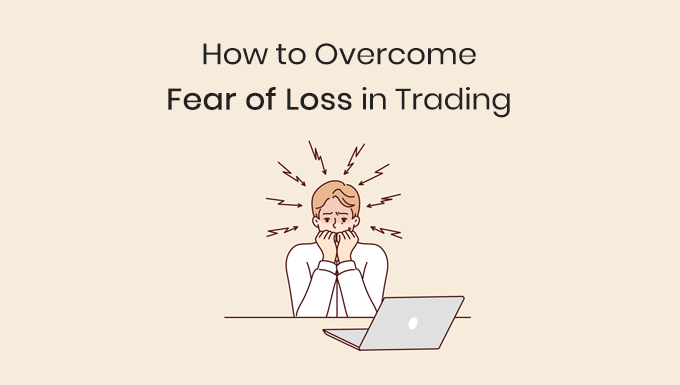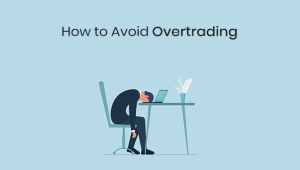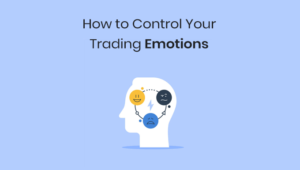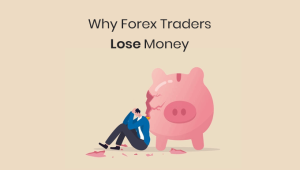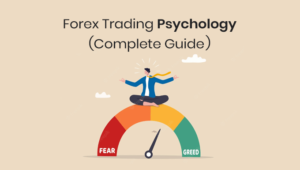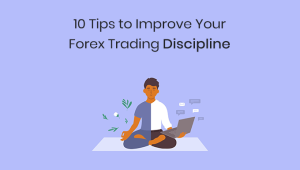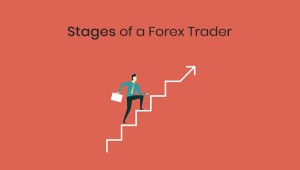Hey there, fearless traders—or shall I say, soon-to-be fearless traders? Today, we’ll look at a topic that even the most experienced traders struggle with: the fear of loss in trading. It’s that annoying little voice in your head that causes your heart to race whenever you’re about to make a trade. So, how do you overcome this fear and gain the confidence to make smarter trading choices? Stick around, because I’ve got some tried-and-true strategies just for you.
Table of Contents
• Practical Techniques for Emotional Control
• The Importance of Having a Trading Plan
• Identifying and Sticking to Your Risk Tolerance
• The Role of Continuous Learning and Improvement
• Seeking Professional Guidance
• Case Studies
• Conclusion
Understanding the Psychology Behind Fear of Loss
Why Fear of Loss Exists?
First, let’s acknowledge that fear of loss is natural. It’s your brain’s way of telling you to avoid risk, and it’s hardwired into our DNA. But when it comes to trading, this instinctual response can often do more harm than good.
What Triggers the Fear?
Fear of loss in trading often stems from emotional reactions rather than rational decision-making. Understanding that fear is a natural emotional response to potential loss can help traders take steps to mitigate it. In many cases, fear is exacerbated by past failures or the idea that a loss could significantly impact one’s life.
When Panic Takes Over
You know you’ve got a case of fear of loss when you start making impulsive decisions. Are you selling too early just to avoid potential loss? Are you holding back from solid opportunities because you’re too afraid? If yes, then read on.
Types of Fear
The fear of loss in trading usually comes in two forms: the fear of losing out on a good opportunity (“FOMO”) and the fear of actually losing money. Knowing which type you’re most susceptible to can help tailor your strategy for overcoming it.
The Brain’s Role
The brain plays a significant role in how we perceive fear. The amygdala, a part of the brain responsible for emotional processing, often activates when we’re about to make a trading decision that we perceive as risky. Being aware of this physiological response is the first step to overcoming it.
Rational vs Emotional Decision Making
Understanding that your brain is wired to react emotionally can help you separate emotion from logic when making trading decisions. Taking a step back to analyze the situation objectively can often lead to better decision-making. For example, rather than making hasty decisions based on short-term market movement, consider the long-term trends and your trading strategy.
How it Affects Your Trading
Fear can be paralyzing and may cause traders to miss profitable opportunities. You might find yourself overanalyzing the market, second-guessing your strategies, and losing focus. This fear-induced paralysis prevents you from executing your trading plan effectively.
Breaking the Fear Cycle
Finally, it’s crucial to break the cycle of fear by incorporating stress-reducing techniques such as deep breathing or taking breaks from trading. By breaking the cycle, traders can learn to manage fear and turn it into a constructive force that drives better decision-making.
Practical Techniques for Emotional Control
Breathing Techniques
Among the easiest ways to control your emotions during a trading session is by using deep breathing techniques. Simple exercises like the 4-7-8 method, where you breathe in for 4 seconds, hold for 7, and exhale for 8, can help calm your nervous system.
Mindfulness and Meditation
Mindfulness techniques and meditation can also serve as valuable tools for emotional control. These methods help you become aware of your thoughts and feelings, thus giving you a greater degree of control over your emotional state while trading.
Visualization
Another way to manage emotions is through visualization exercises. Before entering a trade, picture different outcomes and how you’d handle them. Visualizing both successful and unsuccessful scenarios will prepare you mentally for any eventuality, reducing the fear factor.
Stress Balls and Physical Movements
Physical activities like squeezing a stress ball or taking a quick walk can be surprisingly effective in reducing emotional stress. The act of moving your body can divert your attention from stress, helping you focus better on your trading decisions.
The Importance of Having a Trading Plan
Why You Need a Trading Plan
Having a trading plan acts as a roadmap for your trading activities. It sets forth your strategies, risk management techniques, and key performance indicators. This plan serves as your point of reference, especially when emotions run high, effectively reducing the room for fear-based decisions.
Components of a Trading Plan
A comprehensive trading plan includes elements like entry and exit strategies, risk management techniques, and performance metrics. It also specifies the instruments you’ll be trading, the timeframe for trades, and the conditions under which you’ll revise the plan.
How a Plan Reduces Fear
When you have a structured trading plan, it’s easier to stick to the plan rather than making impulsive decisions based on fear. Having set guidelines to follow can provide a sense of security and lessen the burden of making on-the-spot decisions under pressure.
Periodic Review and Adjustments
Regularly reviewing and updating your trading plan is crucial. The market conditions are ever-changing, and so are your skills and understanding of trading dynamics. Periodic reviews allow you to refine your plan and strategies, making it easier to handle emotions like fear.
Identifying and Sticking to Your Risk Tolerance
What is Risk Tolerance?
Risk tolerance is the level of risk you are comfortable taking in your trading activities. It’s generally influenced by your financial situation, investment goals, and psychological factors. Knowing your risk tolerance is essential for making informed trading decisions.
Importance in Trading
By identifying your risk tolerance, you can set appropriate risk management strategies and stop-loss orders. This ensures that you don’t expose yourself to greater losses than you can handle, thereby reducing the fear of loss.
Risk-Reward Ratio
Implementing a risk-reward ratio in line with your risk tolerance can serve as a robust risk management strategy. For instance, if your risk tolerance allows you to risk $100 for a potential gain of $300, you’ve set a 1:3 risk-reward ratio, which helps in maintaining emotional balance during trades.
Keeping Emotions at Bay
When you trade within your risk tolerance, it becomes easier to manage your emotions. You’re less likely to be driven by fear when you know you’re risking an amount you can afford to lose. Consistently sticking to your risk tolerance can mitigate fear over time.
The Role of Continuous Learning and Improvement
The Never-Ending Learning Curve
Trading is a field where continuous learning is necessary. The markets change, new technologies emerge, and trading methods evolve. Being committed to ongoing education not only enhances your skills but also builds confidence, thereby reducing fear.
Mistakes as Learning Opportunities
Every trader makes mistakes, but the key is to view them as learning opportunities. By dissecting your failures, you gain insights that can help you avoid similar mistakes in the future. This positive approach transforms fear into a catalyst for improvement.
Practice Makes Perfect
Trading simulators and demo accounts offer a risk-free environment to practice your trading skills. These platforms allow you to test your strategies, learn from your mistakes, and gain experience without the fear of losing real money.
Community Learning
Engaging with a community of traders can offer additional perspectives and tips on overcoming fear. Online forums, social media groups, and mentorship programs can serve as valuable resources for learning and emotional support.
Seeking Professional Guidance
The Value of Mentorship
Having a forex mentor can significantly reduce the fear of loss in trading. A mentor’s expertise and experience can guide you through the complexities of trading, helping you make informed decisions and providing emotional support during challenging times.
Financial Advisors and Psychologists
Some traders seek the guidance of financial advisors or trading psychologists to help manage their fears. These professionals offer specialized advice tailored to your needs, helping you understand the psychological aspects affecting your trading performance.
Webinars and Online Courses
There’s a plethora of webinars, online courses, and workshops available for traders. These educational resources can provide you with the skills and techniques to better manage your emotions and reduce fear.
Support Groups
Trading support groups are becoming increasingly popular as traders seek collective wisdom and emotional support. These groups can provide valuable insights into how others have successfully managed fear, serving as a source of both education and encouragement.
Case Studies: Learning from Others’ Mistakes and Successes
Why Case Studies are Useful
Case studies offer real-world examples of how traders have dealt with the fear of loss. These accounts can provide invaluable insights into the techniques and strategies that have proven successful for others, offering you practical ideas to implement in your own trading activities.
Common Themes
In many case studies, you’ll find common themes such as the importance of a solid trading plan, adherence to risk management rules, and the value of continuous education. These recurring elements serve as guidelines for your own trading journey.
Learning from Mistakes
Case studies often include accounts of trades gone wrong, providing cautionary tales of what to avoid. Learning from others’ mistakes can be as valuable as understanding their successes. This knowledge not only educates you but also serves as a fear-reducing agent.
Customizing Learnings to Your Needs
Not all strategies will suit every trader. Case studies can be most effective when you extract the principles that align with your trading style and risk tolerance. Adapt these learnings to your unique needs to construct a fear-minimizing approach that works for you.
Conclusion
Overcoming the fear of loss in trading is a difficult task. It involves understanding the psychological triggers, developing emotional control techniques, and adhering to a well-crafted trading plan. Continual learning, professional guidance, and studying others’ experiences further enhance your ability to trade without fear. By incorporating these elements into your trading strategy, you set yourself on a path to more confident and potentially profitable trading.
FAQs
1. What is the psychology behind the fear of loss in trading?
The fear of loss often stems from emotional reactions and is heightened by past failures or the idea that a loss could significantly impact one’s financial standing. The amygdala, a part of the brain responsible for emotional processing, also plays a role in amplifying this fear.
2. How does a risk management plan help in reducing fear?
A well-implemented risk management plan sets clear boundaries on how much you’re willing to lose on a trade. It includes elements like setting stop-loss orders, determining risk-reward ratios, and diversifying your portfolio. Following a risk management plan can build confidence over time, reducing the fear associated with trading.
3. How Do I Do an “Emotional Check-In” Before Trading?
An emotional check-in involves taking a moment to assess your emotional state before making a trading decision. Are you feeling nervous, anxious, or overly excited? Any heightened emotion can cloud your judgment and lead to impulsive decisions. If you find that you’re emotionally charged, it might be best to step back and refrain from trading until you’re in a more balanced state of mind.
4. Can I Ever Completely Eliminate Fear of Loss in Trading?
The goal isn’t necessarily to completely eliminate fear, but to manage and harness it effectively. A healthy amount of fear can serve as a cautionary element, making you more diligent in your research and risk assessment. What you want to avoid is letting fear paralyze you or drive you to make impulsive decisions. With education, practice, and emotional awareness, you can significantly reduce the impact of fear on your trading activities.
5. Why is continuous learning crucial for overcoming the fear of loss?
The trading landscape is always changing, and staying updated with new strategies, market conditions, and risk management techniques is essential for long-term success. Continuous learning can make you more resilient and less prone to fear, as you’ll have a broader knowledge base to make informed trading decisions.
